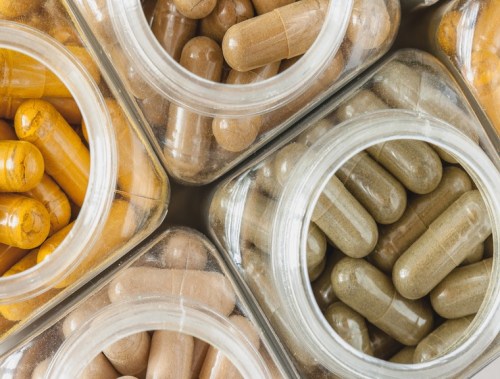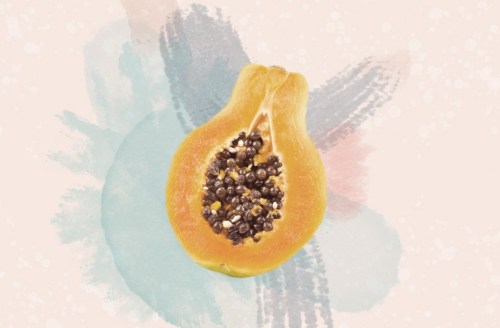Ever since douching fell out of favor in the ’90s—when a growing body of research linked the practice with infections, irritation, and pregnancy complications—most medical pros have advised women to take a product-free approach to caring for their lady parts. But suddenly, it feels like a ton of new, natural pills and potions have started popping up, all aimed at helping women deep-clean downstairs. So what’s the deal?
Are probiotics created specifically to curb candida or pH-balancing “post-play” wipes (to help you tidy up after getting busy without harsh chemicals) actually necessary investments for your vag? Consumers seem to think so.
To find out whether there’s a legit case for splurging on down-there care, I polled several doctors for their thoughts.
A $36 vaginal soap from former The Hills star Lo Bosworth’s Love Wellness line is so popular it’s currently sold out. And celebs like Gwyneth Paltrow, as well as holistic beauty experts like the women behind LEAFtv, are fans of the v-steam, a spa treatment that detoxes your lady bits with soothing herbs.
Still, many medical pros insist that the decades-old messaging still applies: Intimate care doesn’t require quite so much fanfare. “The vagina has the ability to ‘self-clean.’ Really, it does,” says Barb DePree, MD, an OB/GYN with Lakeshore Health Partners in Michigan. “This is one area for a woman that is truly low-maintenance.”
Yet, it’s hard to believe that these products and practices don’t do any good, given the glowing reviews they’re getting from fans. To find out whether there’s a legit case for splurging on down-there care, I polled several doctors for their thoughts. Is it worth adding feminine upkeep to our self-care regimens—or should we be saving our money for bath salts and face masks instead?
Keep reading for everything you need to know about cleaning your lady parts.

Do I need a special cleanser for my vagina?
Good news, minimalists: Dr. DePree says that when it comes to washing up down below, clear water or ultra-mild soap are all you really need. “The skin of the vulva can be very sensitive, so this is an area where the ‘less is best’ rule applies,” she says.
Mary Jane Minkin, MD, agrees that most run-of-the-mill suds won’t do your privates any favors. But she says that if you need more than H2O to feel fresh, you should make it a cleanser formulated for your vagina’s ideal pH (3.5–4.5)—like the ones from Love Wellness and Sustain Natural.
“It sounds strange, but an acid environment in the vagina is good.”
“It sounds strange, but an acid environment in the vagina is good,” says Dr. Minkin, a clinical professor in the department of obstetrics, gynecology, and reproductive sciences at the Yale University School of Medicine. “It keeps away bad bacteria.”
The verdict: If you aren’t having any problems with your undercarriage, you don’t need to splash out on a fancy soap. But if you’re prone to yeast infections, one of the new-gen vaginal cleansers may be worth a try.

What about probiotics formulated for my lady parts?
Both MDs came to a consensus on this one—probiotics are just as vital for your vagina as they are for your gut.
“The vagina, like the GI tract, has an abundance of necessary and good bacteria that are in balance to maintain vaginal health,” says Dr. DePree. “Any disruption to this [equilibrium] can make a woman more prone to infection.” And, as we all know by now, probiotics help stabilize your microbiome.
Probiotics are just as vital for your vagina as they are for your gut.
But not every bacterial strain will be equally effective—both doctors claim lactobacillus, in particular, is best for vaginal wellness. “RepHresh Pro-B is one brand that contains a good amount of lactobacilli, which are helpful to maintain a healthy vaginal flora,” says Dr. Minkin.
The verdict: If you’re on antibiotics or suffer from frequent yeast infections, try a probiotic rich in vagina-friendly lactobacillus.

And what’s the deal with the v-steam?
Advocates claim that the treatment can clear up vaginal infections, reduce period pain, soothe dryness, and assist with lots of other issues. Essentially, the treatment involves sitting on a seat with a hole in the middle, perched above a vat of boiling water infused with medicinal herbs.
Dr. DePree and Dr. Minkin are both staunchly against the idea of v-steaming—mainly because there’s no scientific literature definitively backing up its claims. (Not to mention there’s a burn risk that comes with exposing your nether regions to high heat.)
“Steam warms the area but doesn’t flush it out, so it doesn’t disrupt the delicate balance of beneficial bacteria in the vagina.”
But Jill Blakeway, a doctor of acupuncture and Chinese medicine, says that if you go to a legit practitioner, there’s pretty much no chance of an accident happening. (Her New York City clinic, The YinOva Center, has been safely offering v-steams since 2010.)
“The v-steam has been used in traditional medicine for hundreds of years, and it’s a gentle treatment,” she stresses. “In our office, we’re careful that the steaming water is cool enough and far enough away from the vagina that there’s no danger of the patient getting burned.”
She’s also quick to point out that this isn’t actually a “cleansing” practice at all, despite the fact that it’s often portrayed that way. “The steam warms the area but doesn’t flush it out, so it doesn’t disrupt the delicate balance of beneficial bacteria in the vagina,” she says. “We do sometimes use antimicrobial herbs for patients who have repeated infections, but their action is non-irritating and tends to bring vaginal flora back into balance, rather than upsetting the balance.”
The verdict: If you’re willing to risk not getting the results you want—since, as the MDs mention, research hasn’t proven v-steaming actually works—then find a trusted Chinese-medicine practitioner who can tell you whether the practice is right for you. (And make sure to give your doc a heads-up.) Hey, if it’s good enough for Ms. Paltrow…
While you’re looking into ways to make things better, vajayjay-wise, here’s why you’ll want to invest in workout underwear and the 5 things most likely causing your vaginal itch sitch.
Sign Up for Our Daily Newsletter
Get all the latest in wellness, trends, food, fitness, beauty, and more delivered right to your inbox.
Got it, you've been added to our email list.











